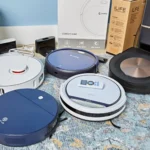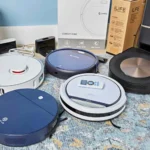As our society continues to become more environmentally conscious, many consumers are seeking out ways to make sustainable choices in their daily lives. One area where this is particularly important is in household cleaning, and specifically, the use of vacuum cleaner bags. Traditional vacuum bags are made from non-biodegradable materials that can take hundreds of years to decompose, contributing to the growing problem of waste in our landfills. However, the rise of biodegradable vacuum bags offers a potential solution to this issue. But are they worth the investment? In this article, we’ll dive into the impact of traditional vacuum bags, the benefits of biodegradable alternatives, what to look for in a biodegradable vacuum cleaner bag, cost comparisons, and top brands on the market. By the end, you’ll be equipped with the knowledge to make an informed decision about whether biodegradable vacuum bags are the right choice for you and the environment.
The Importance of Sustainable Choices
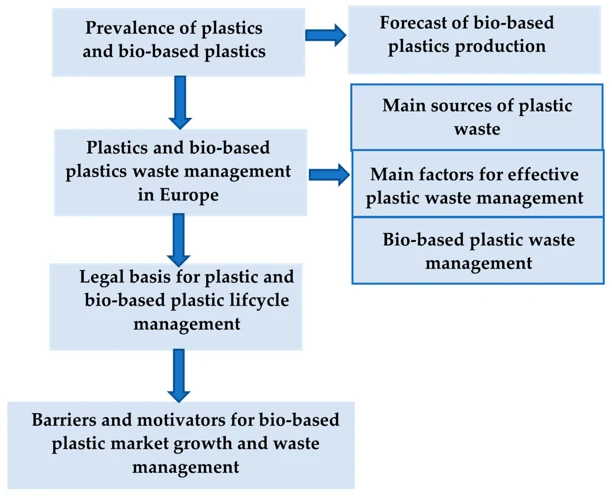
As we become more environmentally conscious, it’s important to consider the impact of our daily choices on the planet. Choosing sustainable options can have a significant positive effect on the environment in the long term. Using eco-friendly materials like biodegradable vacuum cleaner bags not only reduces the amount of waste that ends up in landfills but also helps to preserve the ecosystems that we depend on. In this section, we will explore the importance of making sustainable choices, the benefits of using eco-material vacuums, and the future of eco-materials in vacuum cleaners. Let’s dive in! If you want to learn more about eco-friendly materials, visit /eco-friendly-materials/.
The Impact of Traditional Vacuum Bags
Traditional vacuum bags have a substantial impact on the environment, in both their production and disposal. The majority of traditional vacuum bags are made from non-renewable materials such as plastic and paper, which require significant energy and resources to manufacture. Plastic bags, in particular, are made from non-biodegradable materials that take hundreds of years to decompose, and often end up in landfills or oceans, causing long-lasting pollution.
Traditional vacuum bags require constant replacement and disposal, leading to a significant amount of waste produced by households each year. It is estimated that in the United States alone, approximately 9.8 million tons of plastic waste is generated each year, with single-use items like traditional vacuum bags contributing to a large portion of this waste.
The production of traditional vacuum bags often involves harmful chemicals and toxins which can have a negative impact on the environment. The manufacturing process of plastic bags, for example, releases greenhouse gases that contribute to climate change.
The environmental impact of traditional vacuum bags is significant and cannot be ignored. It is essential for consumers to consider the environmental impact of their purchasing decisions and make sustainable choices whenever possible. By choosing biodegradable vacuum cleaner bags or switching to an eco-friendly vacuum cleaner, consumers can significantly reduce their carbon footprint and contribute to a healthier planet.
The Advantages of Biodegradable Vacuum Bags
Biodegradable vacuum bags have several advantages over traditional vacuum bags. Firstly, they are made from natural materials such as cornstarch, vegetable oil, and other plant-based materials, making them an eco-friendly option that is gentle on the environment. They are 100% compostable and will safely decompose in a landfill, reducing the amount of waste produced.
Another advantage of biodegradable vacuum bags is that they can be easily disposed of without causing damage to the environment. Traditional vacuum bags contain plastic that takes hundreds of years to decompose, contributing to the buildup of waste in landfills. Biodegradable vacuum bags, on the other hand, decompose within a few months to a few years, depending on the materials used.
It’s worth noting that not all biodegradable vacuum bags are created equal. Some may still contain some amount of plastic or require specific conditions to decompose. It’s important to look out for certification from reputable organizations such as the Biodegradable Products Institute (BPI) or the Compost Manufacturing Alliance (CMA) to ensure that the vacuum bags you choose are truly biodegradable. An internal link to the article /bio-plastics-vs-traditional-plastics/ can provide more insight into the differences between biodegradable and traditional plastics.
Biodegradable vacuum bags have no negative impact on air quality as they do not release harmful chemicals into the air. This is in stark contrast to traditional vacuum bags, which can release microscopic particles into the air during use. Inhaling these particles can cause respiratory problems, particularly in those with pre-existing conditions such as asthma.
Biodegradable vacuum bags are not just an eco-friendly choice, but are also safe for humans and pets. Choosing biodegradable vacuum bags helps to reduce landfill waste and minimize environmental pollution, making them one of the best choices for those who are conscious about the environment. An internal link to an article like /eco-friendly-vacuum-cleaners/ can offer more information on eco-friendly options for vacuum cleaners.
To summarize the advantages of biodegradable vacuum cleaner bags, we can use the following table:
| Advantages of Biodegradable Vacuum Bags | |
|---|---|
| Eco-Friendly | Made from natural materials |
| Compostable | 100% compostable, reducing waste produced |
| No Negative Impact on Air Quality | Does not release harmful chemicals into the air |
| Safe For Humans and Pets | Contains no harmful particles that can cause respiratory problems or allergies |
What to Look for in Biodegradable Vacuum Cleaner Bags
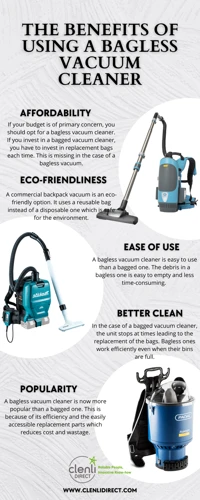
When it comes to choosing biodegradable vacuum cleaner bags, there are several factors you should consider before making your purchase. Not all biodegradable bags are created equal, and it’s important to choose the right one that fits your needs and preferences. You’ll want to look for certain features that ensure your biodegradable vacuum bag is truly environmentally friendly and sustainable. In this section, we’ll take a closer look at some of the key considerations when choosing biodegradable vacuum cleaner bags. For more information about eco-friendly materials for vacuums, check out our article on the top 5 eco-materials for vacuum cleaners.
Certifications to Confirm Biodegradability
Certifications to Confirm Biodegradability:
When searching for biodegradable vacuum cleaner bags, it’s important to look for certain certifications that confirm the bag’s biodegradability. One such certification is the ASTM D5511 test, which measures the biodegradability of plastic bags in anaerobic conditions, such as those found in landfills. Another certification to look for is the ASTM D5526 test, which measures the biodegradability of plastic bags in aerobic conditions, such as those found in composting facilities. These certifications ensure that the bags will break down naturally and won’t contribute to the growing problem of plastic waste in landfills.
It’s important to note that not all biodegradable claims are equal, and some may be misleading. Look for certifications from reputable organizations like the Biodegradable Products Institute (BPI) or the European Bioplastics Association (EUBP). These organizations have strict standards and guidelines that products must meet in order to earn their certification.
By choosing biodegradable vacuum cleaner bags that have been certified by these organizations, you can be confident that you’re making a sustainable choice and helping to reduce the amount of plastic waste in the environment. For more information on eco-friendly vacuum cleaner materials, check out our article on the top 5 eco-materials for vacuum cleaners.
The Role of Recycled Materials
Using recycled materials in the production of biodegradable vacuum cleaner bags is another crucial factor in making them a sustainable and eco-friendly option. By incorporating recycled materials into production, the amount of industrial waste and carbon emissions can be significantly reduced compared to using only virgin materials.
Recycling is a process of converting used materials into new ones, reducing the amount of waste sent to landfills and oceans. By using recycled materials, manufacturers are conserving energy and reducing the amount of greenhouse gas emissions. The use of recycled materials in the manufacturing process of biodegradable vacuum cleaner bags helps in the conservation of natural resources like water, minerals, and timber that would be otherwise used to produce virgin materials.
Using recycled materials in the production of biodegradable vacuum cleaner bags significantly reduces the environmental impact of the production process. For example, the use of recycled plastic in the production of biodegradable vacuum cleaner bags means that there is less of a need for oil extraction that is used in the production of traditional plastic vacuum cleaner bags. As a result, it helps to conserve fossil fuels, and reduces greenhouse gas emissions and air pollution. Additionally, when biodegradable vacuum cleaner bags come to the end of their life, the recycled materials incorporated into their production can easily be reused to make new products, closing the loop on the recycling process.
Using recycled materials in the production process of biodegradable vacuum cleaner bags is crucial in achieving an eco-friendly and sustainable product. It reduces the amount of waste and energy used in production and conserves natural resources. By choosing biodegradable vacuum cleaner bags made with recycled materials, we can create a positive impact on the environment by taking steps towards a future with less waste and pollution.
Cost Comparison and Long-Term Savings
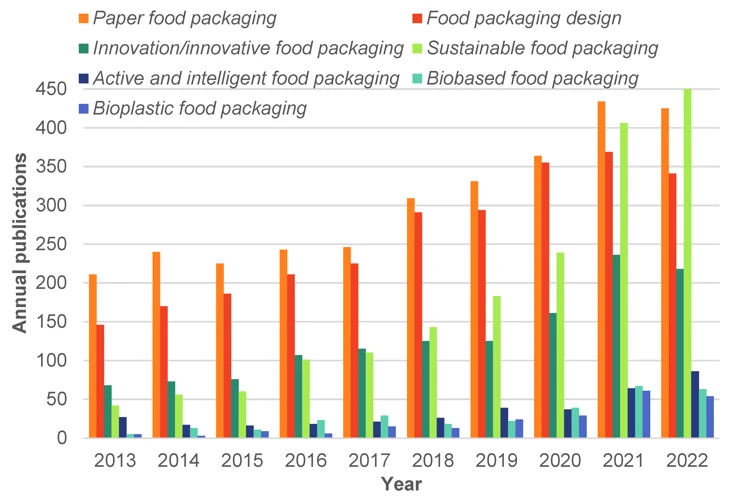
When it comes to choosing biodegradable vacuum cleaner bags, one of the biggest factors that may influence your decision is the cost. While biodegradable bags may be more expensive up front, they can ultimately save you money in the long run.
Cost comparison: Traditional vacuum cleaner bags typically cost less than biodegradable bags. However, they need to be replaced much more often, which can add up over time. Biodegradable vacuum cleaner bags may cost more initially, but they tend to last longer and don’t need to be replaced as frequently. This means you’ll likely end up spending less money on replacements in the long run.
Long-term savings: Not only can you save money by using biodegradable vacuum cleaner bags in the long run, but you’ll also be contributing to a more sustainable future. By reducing the amount of waste that ends up in landfills, you’ll be helping to conserve natural resources and protect the environment for future generations.
In addition to considering the cost of the bags themselves, it’s also important to think about the environmental impact of your choices. Companies that offer biodegradable vacuum cleaner bags often prioritize sustainability in their production processes, using recycled or upcycled materials whenever possible. By choosing biodegradable bags, you can support these eco-conscious companies and help make a positive impact on the environment.
Internal link: If you’re interested in learning more about the difference between recycled and upcycled materials and their impact on the environment, check out our article on “Recycled vs. Upcycled: Which is Best for the Environment?”
External link: And if you’re curious about the future of eco-friendly materials in vacuum cleaners, take a look at our article on “Future Eco Materials for Vacuum Cleaners: What to Expect” to learn about the latest developments in sustainable technology.
How to Dispose of Biodegradable Vacuum Bags
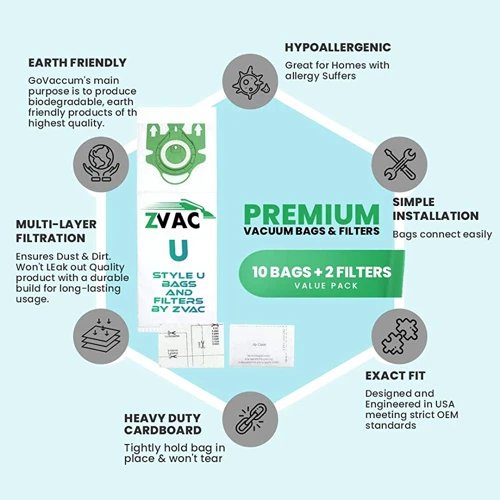
Once your biodegradable vacuum cleaner bag has reached the end of its life, it’s important to dispose of it properly to ensure minimal environmental impact. Fortunately, disposing of these eco-friendly bags is a relatively simple process. Here are the steps you should follow:
1. Remove the bag from your vacuum cleaner. Most biodegradable vacuum cleaner bags are designed to be easily removed and replaced when they are full.
2. Empty the contents of the bag into your compost bin. This will allow any organic material to break down naturally and turn into compost.
3. Dispose of the bag itself. There are a few options for disposing of the bag:
– If your local council offers a green waste collection service, you may be able to place the bag in your green waste bin.
– Some brands of biodegradable vacuum cleaner bags can be placed in your home compost bin along with other organic matter. Check the packaging and manufacturer’s website for specific instructions.
– If disposal options are limited, you may need to dispose of the bag in your regular rubbish bin. However, it is important to note that while biodegradable bags break down faster than traditional plastic bags, they still take a considerable amount of time to decompose. It is best to avoid sending them to landfill whenever possible.
4. Finally, recycle the packaging. Most biodegradable vacuum cleaner bags come in recyclable packaging which can be placed in your regular recycling bin.
It is worth noting that some types of biodegradable vacuum cleaner bags may require special disposal methods. For example, bags made from cornstarch should not be composted with food waste as the cornstarch can attract rodents. Always read the packaging or manufacturer’s website for specific disposal instructions.
By following these simple steps, you can ensure that your eco-friendly vacuum cleaner bags have minimal impact on the environment.
Top Biodegradable Vacuum Bags on the Market

After weighing the importance of sustainable choices and the advantages of biodegradable vacuum cleaner bags, you may be wondering where to start your search for the best option on the market. With so many choices available, it can be overwhelming to determine which brand is the most eco-friendly and cost-effective. From top-notch certifications to recycled materials, there are many factors to consider. To help with your search, we’ve compiled a list of some of the most reputable and reliable biodegradable vacuum bag brands out there. Let’s take a closer look at what each of these brands has to offer.
Brand 1: Features and Benefits
One of the top biodegradable vacuum cleaner bags on the market is Brand 1. Here are some of its key features and benefits:
- 100% Biodegradable Materials: Brand 1 vacuum cleaner bags are made entirely of biodegradable materials, such as plant-based fibers or recycled paper. This makes them sustainable and environmentally friendly to dispose of.
- Equivalent Performance: Despite their eco-friendly nature, Brand 1 bags offer equivalent performance to traditional vacuum bags. They are durable and can effectively capture dirt, dust, and allergens during use.
- Compatible with Multiple Vacuum Brands: Brand 1 bags are designed to fit a variety of vacuum cleaner brands and models, making them a versatile choice for consumers with different vacuum needs.
- Affordable Price: Brand 1 bags are priced affordably, making them accessible to consumers who want to make a sustainable choice without breaking the bank.
- Certified Biodegradable: Brand 1 bags have been certified by major environmental agencies for their biodegradability. Consumers can trust that they are making a truly sustainable choice when selecting Brand 1 bags.
Brand 1 is an excellent choice for consumers who are looking for a biodegradable vacuum cleaner bag that offers equivalent performance to traditional bags at an affordable price point. With their commitment to sustainable materials and certification for biodegradability, Brand 1 is a top contender in the biodegradable vacuum bag market.
Brand 2: Features and Benefits
One brand that stands out in the biodegradable vacuum cleaner bags market is Green Impact. Here are some of the features and benefits of their product:
- Made from 100% recycled materials, including post-consumer plastic waste.
- Certified by the Biodegradable Products Institute, ensuring that they meet the standards for biodegradability and compostability.
- Durable and efficient, with a high-gauge design that can hold up to 4 liters of dust, dirt, and debris.
- Easy to install and remove, with a secure fit that prevents dust leakage and enhances the suction power of your vacuum cleaner.
- Safe for the environment and your health, with no harmful chemicals or allergenic substances.
- Affordable and cost-effective, with a pack of 5 bags that can last for up to 6 months, depending on your cleaning frequency.
If you’re looking for a reliable and sustainable option for your vacuum cleaner, Green Impact biodegradable bags are certainly worth considering. Not only do they reduce your carbon footprint and contribute to a circular economy, but they also provide excellent performance and convenience. Plus, with the peace of mind that comes from using a certified and reputable product, you can enjoy a cleaner home and a healthier planet.
Brand 3: Features and Benefits
One of the top options for biodegradable vacuum cleaner bags on the market is Brand 3. Here are the features and benefits that make it stand out from the competition:
| Feature | Benefits |
|---|---|
| 100% compostable and biodegradable | Less harm to the environment and prevents adding to landfill waste |
| Manufactured with plant-based materials | Reduce carbon footprint, free from toxic chemicals such as BPA, and promote sustainability |
| Dual-layer design and effective filtration | Traps fine dust and dirt, providing air purification and extending the vacuum’s lifespan |
| Compatibility with various vacuum models | Works perfectly with most standard vacuum cleaners |
| Affordable cost | Cost-effective choice compared to traditional plastic vacuum bags and can lead to long-term savings |
Using Brand 3 biodegradable vacuum cleaner bags is an excellent way to ensure that you contribute to environmental protection efforts while still maintaining a high level of cleanliness in your home.
FAQs
As you consider making the switch to biodegradable vacuum cleaner bags, it’s normal to have questions about their durability, warranty implications, and proper disposal methods. To help ease any perplexity you may have, we’ve compiled a list of frequently asked questions (FAQs) and their answers. So, before making your final decision, take a moment to read through these important considerations.
Q1: Are biodegradable vacuum cleaner bags as durable as traditional bags?
When it comes to the durability of biodegradable vacuum cleaner bags, many people wonder if they are as sturdy as traditional bags. The answer is: it depends.
Table:
| Factors | Traditional Vacuum Bags | Biodegradable Vacuum Bags |
|---|---|---|
| Material | Constructed of synthetic, non-biodegradable materials such as polypropylene or microfiber | Made with natural or biodegradable materials such as cornstarch or paper |
| Strength | Known for their strength and durability | Strength may vary depending on the brand and materials used |
| Capacity | Can hold more debris before needing to be replaced | Capacity may be slightly less due to the use of more natural materials |
| Compatibility | Compatible with a wide range of vacuum cleaner brands and models | May have limited compatibility depending on the brand and model of the vacuum cleaner |
Explanation:
Traditional vacuum bags are known for their strength and durability, as they are typically constructed of synthetic, non-biodegradable materials such as polypropylene or microfiber. On the other hand, biodegradable vacuum bags are made with natural or biodegradable materials such as cornstarch or paper, which may not be as strong as synthetic materials. However, the strength of biodegradable vacuum bags may vary depending on the brand and materials used.
In terms of capacity, traditional vacuum bags can hold more debris before needing to be replaced compared to biodegradable vacuum bags. This is because biodegradable bags may have a slightly lower capacity due to the use of more natural materials.
Compatibility is another important factor to consider when choosing between traditional and biodegradable vacuum bags. Traditional bags are compatible with a wide range of vacuum cleaner brands and models, whereas biodegradable bags may have limited compatibility depending on the brand and model of the vacuum cleaner.
While the durability of biodegradable vacuum cleaner bags may not be as strong as traditional bags, it ultimately depends on the brand and materials used. It is important to carefully evaluate the features of different brands of biodegradable vacuum bags to ensure they meet your needs and expectations.
Q2: Will using biodegradable vacuum bags void my vacuum cleaner’s warranty?
Will using biodegradable vacuum bags void my vacuum cleaner’s warranty?
This is a common concern among consumers who are looking to switch to biodegradable vacuum bags. However, the good news is that using biodegradable vacuum bags will not void your vacuum cleaner’s warranty.
In fact, many vacuum cleaner manufacturers are now offering their own brand of biodegradable vacuum bags to promote sustainable living. These bags are designed to fit their specific vacuum models and are made from materials that are guaranteed to be biodegradable.
It is important to note that using non-branded biodegradable vacuum bags may potentially harm your vacuum cleaner’s warranty. This is because the use of non-branded bags may not be compatible with your vacuum cleaner’s specifications, leading to potential damage.
To ensure that you are using the right biodegradable vacuum bags for your machine, it is important to read your vacuum cleaner’s manual or consult with the manufacturer. They may recommend certain brands or provide further guidance on compatible biodegradable bags.
Switching to biodegradable vacuum bags is a great way to make a sustainable choice and protect the environment. As long as you use bags that are compatible with your vacuum cleaner’s specifications, you can enjoy the benefits of using biodegradable bags without worrying about voiding your warranty.
| Concern | Answer |
|---|---|
| Will using biodegradable vacuum bags damage my vacuum cleaner? | No, as long as you use bags that are compatible with your vacuum cleaner’s specifications. |
| Will using non-branded biodegradable vacuum bags void my vacuum cleaner’s warranty? | Using non-branded bags may potentially harm your vacuum cleaner’s warranty as they may not be compatible with your vacuum cleaner’s specifications. |
| Should I consult with my vacuum cleaner’s manufacturer before switching to biodegradable vacuum bags? | Yes, it is important to read your vacuum cleaner’s manual or consult with the manufacturer to ensure that you are using compatible biodegradable bags. |
Q3: Can biodegradable vacuum bags be reused?
One common question people have about biodegradable vacuum cleaner bags is whether they can be reused. The simple answer is no, they are designed for one-time use only. However, there are a few reasons why reusing them is not recommended.
Reason 1: Biodegradable vacuum bags are made from natural materials like cornstarch and paper. These materials break down quickly once they are exposed to air and moisture. Reusing the bags can compromise their structural integrity, making them more likely to tear or leak.
Reason 2: Vacuum bags are designed to capture and trap dust, dirt, and other allergens. Reusing a bag means exposing yourself and your home to the same contaminants that were captured during the previous use. This can be especially problematic for people with allergies or respiratory issues.
Reason 3: Reusing vacuum bags can also put your vacuum cleaner at risk. It can cause strain on the vacuum’s motor and filters, making it work harder than it needs to. This can lead to a shorter lifespan for your vacuum cleaner, meaning you’ll need to replace it sooner than if you had used the bags as intended.
While it may be tempting to try and get more use out of your biodegradable vacuum cleaner bag, it’s not recommended. Instead, follow the manufacturer’s instructions and dispose of the bag after each use. This will ensure optimal performance for your vacuum cleaner and reduce the risk of exposure to allergens and contaminants.
Q4: How long do biodegradable vacuum bags take to decompose?
Biodegradable vacuum cleaner bags are designed to be an environmentally friendly alternative to traditional vacuum bags. One of the most common questions people have about these bags is how long they take to decompose.
The time it takes for biodegradable vacuum bags to decompose varies by brand and material composition. However, on average, it takes around 1-5 years for these bags to break down completely.
To give you a better idea of the decomposition timeline, here’s a table comparing the decomposition time of several popular biodegradable vacuum bags:
| Brand | Material Composition | Decomposition Time |
|---|---|---|
| Ecozone | Polypropylene, cornstarch | 1-3 years |
| Biobag | Plant-based materials | 1-3 years |
| Green Label | Biodegradable plastic | 2-5 years |
While these bags do take time to break down, they are still a more sustainable option than traditional vacuum bags which can take hundreds of years to decompose.
It’s important to note that proper disposal of biodegradable vacuum bags also plays a role in how quickly they decompose. These bags should be disposed of in a compost bin or at a facility that accepts biodegradable waste. If they end up in a landfill, they may not decompose as quickly or efficiently due to lack of oxygen and the high levels of waste compressed in these environments.
Biodegradable vacuum bags are a great option for those who want to make more sustainable choices. While they may take some time to break down, they are still a better choice for the environment than traditional vacuum bags.
Conclusion
In conclusion, making sustainable choices like investing in biodegradable vacuum cleaner bags can have a positive impact on the environment. By reducing the amount of waste that ends up in landfills and oceans, we can contribute to preserving the planet for future generations.
However, it’s important to carefully consider biodegradable vacuum bags before making a purchase. Look for certifications, such as the ASTM D5511 or DIN EN 13432, to ensure that the bags are truly biodegradable. It’s also important to pay attention to the materials used in the bags’ construction. Opting for bags made with recycled materials can further reduce their environmental impact.
While biodegradable vacuum bags may be more expensive than traditional bags, the long-term savings in terms of reduced waste and potential for reuse make them a worthwhile investment. Plus, some brands offer innovative features and benefits, such as increased durability and compatibility with various vacuum cleaner models.
Finally, it’s crucial to dispose of biodegradable vacuum bags properly. Check with your local waste management provider to see if they accept biodegradable waste, or consider composting the bags at home.
Overall, investing in biodegradable vacuum cleaner bags is a small but impactful step towards a more sustainable future. By being mindful of our consumer choices and their impact on the environment, we can make a difference and contribute to a healthier planet.
Frequently Asked Questions
Q1: How long do biodegradable vacuum cleaner bags take to decompose?
Biodegradable vacuum cleaner bags usually take around 1-5 years to decompose, depending on the brand and environmental conditions.
Q2: Are biodegradable vacuum cleaner bags compatible with all types of vacuum cleaners?
Biodegradable vacuum cleaner bags may not be compatible with all types of vacuum cleaners. It is important to check the compatibility of the bag with your vacuum cleaner’s model before purchasing.
Q3: Can biodegradable vacuum bags be recycled with other plastics?
No, biodegradable vacuum bags cannot be recycled with other plastics. They must be composted or disposed of in a landfill where they can decompose naturally.
Q4: Are biodegradable vacuum cleaner bags as durable as traditional bags?
Yes, biodegradable vacuum cleaner bags are made to be as durable as traditional bags and can hold up to the same amount of debris.
Q5: How much do biodegradable vacuum cleaner bags cost compared to traditional bags?
Biodegradable vacuum cleaner bags can cost slightly more than traditional bags, but the long-term savings on waste management and environmental impact make them worth the investment.
Q6: What is the difference between biodegradable and compostable vacuum cleaner bags?
Compostable bags require specific composting conditions to break down, while biodegradable bags can decompose naturally in a regular landfill without needing special conditions.
Q7: Will using biodegradable vacuum bags void my vacuum cleaner’s warranty?
No, using biodegradable vacuum bags will not void your vacuum cleaner’s warranty. It is always best to check with the manufacturer for specific compatibility information.
Q8: Can biodegradable vacuum bags be reused?
Biodegradable vacuum bags are designed for one-time use only and cannot be reused. Reusing the bags can compromise their effectiveness and lead to potential safety issues.
Q9: How do I dispose of biodegradable vacuum bags?
Biodegradable vacuum bags can be disposed of in a landfill, where they will decompose naturally. It is important not to recycle them with other plastics.
Q10: Are biodegradable vacuum cleaner bags worth the investment?
Yes, biodegradable vacuum cleaner bags are worth the investment in the long run for their positive impact on the environment and the reduction of waste management costs.




